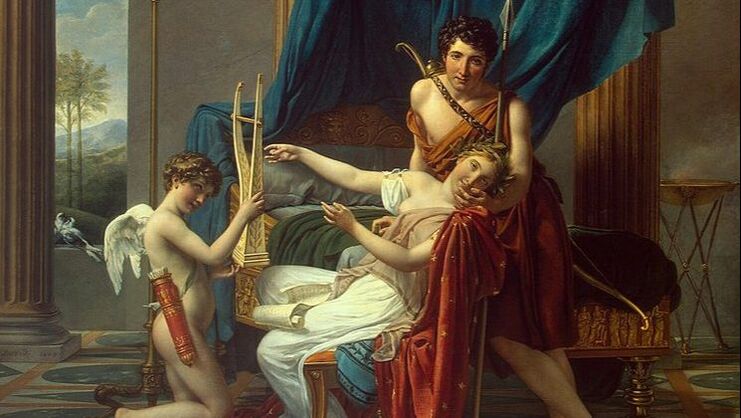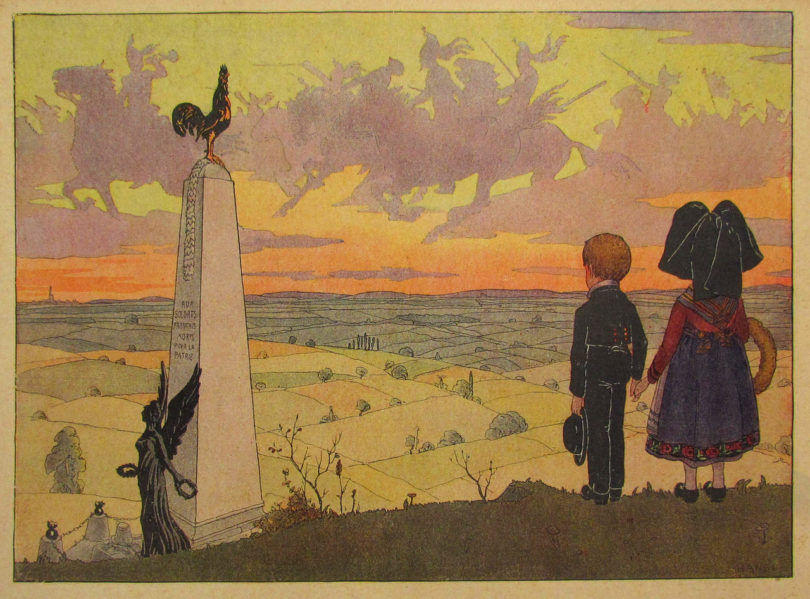The pleasure of love lasts but a moment; the sorrow of love lasts a lifetime. Over the years, musicians of all stripes have been attracted to Jean-Paul-Égide Martini’s beautiful song "Plaisir d’amour". From classical singers like Paul Robeson, to folk singers like Joan Baez, Martini’s haunting melody has found a home in the repertoire of countless performers. Perhaps most famously the tune provided inspiration for the Elvis Presley hit "Can’t help falling in love" in 1961. With the limitations that the pandemic has put on collective music making, many musicians have turned to creating more independent, self-produced projects. The rippling arpeggios in the accompaniment of "Plaisir d’amour" seem naturally suited to a guitar, and with Valentine’s Day just around the corner I thought that an art song on the theme of "the pleasure of love" would be a fun quarantine project to put together. The text is a bit more wistful than your average Valentine’s Day card; Martini captures that mood with a simple but effective melody in the opening refrain. The first verse sets up the story of unrequited love, the second takes a melancholy turn into a minor key only to give way to the refrain once more. "Plaisir d’amour" is the music for which Martini is best remembered today. He was born and educated in Bavaria, and made his career as a court musician in Paris. He composed music and led concerts for the royalty and politicians of France, including Louis XVI, Marie Antoinette, and Napoléon Bonaparte. He fled Paris during the French Revolution but returned in later years to teach composition at the Paris Conservatory. He died in 1816 on Valentine’s Day. Enjoy this musical valentine from Fourth Coast Ensemble, much "amour" to you all.
0 Comments
Maurice Ravel composed his Trois Chansons in late 1914 and early 1915 following the outbreak of World War I. Using his own texts he wrote music for mixed a cappella choir that hearkens back to the traditional French chansons of the late Medieval and early Renaissance eras. Ravel dedicated the songs to people he thought could help him enlist in the military, and he ultimately enlisted in March of 1915, helped by Paul Panlevé to whom the second movement is dedicated. "Trois beaux oiseaux du Paradis" depicts a girl (portrayed by soprano Sarah Van der Ploeg) whose beloved has gone off to war. Three birds representing the colors of the French flag each bring a remembrance of her love—a glance of blue eyes, a kiss of purest white, and a loving heart of crimson. "Ah, I feel my heart growing cold," says the girl as she begins to understand that she will never see her love again. Ravel sets the solo voice against a wordless chorus that often serves as something of a drone, and offers a continual refrain of "my love has gone to the war" to create a haunting atmosphere. Trois Chansons is the only music that Ravel wrote for a cappella choir, and after hearing this song one wishes that he would have composed more. Fourth Coast Ensemble performed these songs on our What a Zoo! concerts in June of 2019. We were joined by guest vocalist Ashley McKinstry.
|
SUBSCRIBEAboutHello, and welcome to the blog! We are Fourth Coast Ensemble, Chicago's classical vocal quartet. Join a different member of our ensemble for insights into our favorite art songs, links to archival and new recordings, and reflections on why we value and continue to come back to this musical medium. We proudly present, your #artsongfix! Archives
June 2023
Categories
All
|





 RSS Feed
RSS Feed
